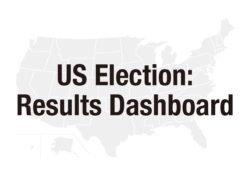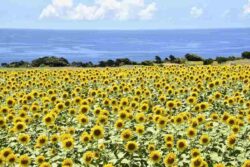- Yomiuri Editorial
- Recovery of land prices
Sustain trend through normalization of economic activities
12:19 JST, September 22, 2022
Land prices are clearly picking up. The recovery from the pandemic-induced downturn is seen as a positive factor. The hope is for a stable rise in land prices through the steady normalization of economic activities.
The national average of land prices for all categories of use as of July 1 was 0.3% higher than a year earlier, up for the first time in three years, according to a report on the benchmark land value released by the Land, Infrastructure, Transport and Tourism Ministry.
By category of use, average land prices in residential areas rose 0.1%, the first increase in 31 years. Commercial land prices also rose 0.5% for the first increase in three years.
Since the lifting in March of quasi-emergency priority measures to prevent the spread of the novel coronavirus, economic activities are continuing to normalize, and the results reflect this. The increase in the value of assets held is expected to improve the sentiment of households and businesses. Maintaining this trend is important.
For residential areas, demand is strong in highly convenient urban areas and the recovery in suburban areas is notable. As telecommuting has taken hold, more people are focusing on the size of their homes and the surrounding residential environment than commuting times, according to the report.
In Tsukuba-Mirai, Ibaraki Prefecture, residential land prices rose more than 10% at some locations. In addition, residential land prices greatly increased in other municipalities, such as Chigasaki, Kanagawa Prefecture.
In the future, it is desirable to provide housing and administrative services that are adapted to changes in lifestyle.
In commercial areas, there are many places where a decline has reversed to a rise, such as downtown areas where the flow of people has recovered and sightseeing spots where domestic tourists have returned. These reversals were seen in some locations in the districts of Shinjuku and Asakusa in Tokyo, Kamakura and Hakone in Kanagawa Prefecture, and the Higashiyama district of Kyoto City.
Still, the current situation is largely a rebound from the downturn caused by the pandemic. Policy support will also be needed to make the recovery in land prices sustainable.
The rate of decline has been reduced in the Dotonbori district of Osaka City and in Takayama, Gifu Prefecture, both of which once were crowded with overseas visitors, but the land prices are still falling there.
The central government intends to ease border control measures against the coronavirus, remove caps on the number of people entering the country and reopen travel to individuals from overseas.
With the yen weakening, this can be said to be a great opportunity to attract visitors to Japan. It is vital to continue measures to curb the spread of the disease and then to use the increase in the number of visitors to Japan to vitalize local communities.
Meanwhile, the weak yen has made it easier for people overseas to acquire real estate in Japan. Foreign investment has a positive impact on the economy, but it would be troublesome if there is an increase in speculative trading and purchases of land around defense-related and other facilities that are deemed important for Japan’s national security.
The government needs to pay attention to developments in real estate investment from overseas.
(From The Yomiuri Shimbun, Sept. 22, 2022)
"Editorial & Columns" POPULAR ARTICLE
JN ACCESS RANKING





